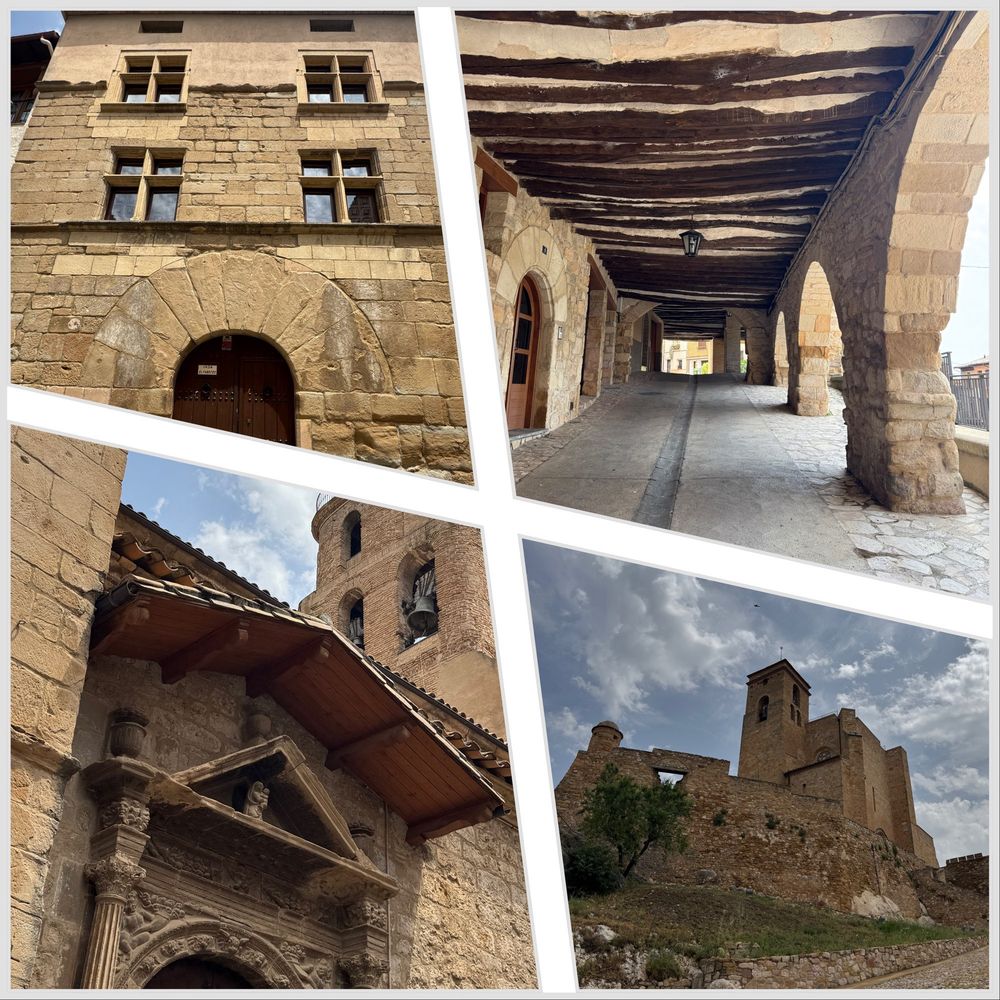Jens Eisert
@jenseisert.bsky.social
Scientist, professor of quantum physics at Freie Universität Berlin and affiliated with Helmholtz Center Berlin and the Fraunhofer Heinrich Hertz Institute. ERC Fellow.
The results of the evaluation of the submissions to #QIP2026 are out. I am very happy to see eight accepted submissions from our team so far.
arxiv.org/abs/2504.12263
arxiv.org/abs/2505.15770
arxiv.org/abs/2502.12284
arxiv.org/abs/2510.07305
arxiv.org/abs/2503.15751
arxiv.org/abs/2510.05531
and …
arxiv.org/abs/2504.12263
arxiv.org/abs/2505.15770
arxiv.org/abs/2502.12284
arxiv.org/abs/2510.07305
arxiv.org/abs/2503.15751
arxiv.org/abs/2510.05531
and …

November 9, 2025 at 2:54 PM
The results of the evaluation of the submissions to #QIP2026 are out. I am very happy to see eight accepted submissions from our team so far.
arxiv.org/abs/2504.12263
arxiv.org/abs/2505.15770
arxiv.org/abs/2502.12284
arxiv.org/abs/2510.07305
arxiv.org/abs/2503.15751
arxiv.org/abs/2510.05531
and …
arxiv.org/abs/2504.12263
arxiv.org/abs/2505.15770
arxiv.org/abs/2502.12284
arxiv.org/abs/2510.07305
arxiv.org/abs/2503.15751
arxiv.org/abs/2510.05531
and …
Over the recent weeks and months, John Preskill and I sat down to think about where we are in quantum computing. While the noisy intermediate-scale quantum (#NISQ) era is just unfolding as we speak, the time seems right to look ahead to the next steps to come.
scirate.com/arxiv/2510.1...
scirate.com/arxiv/2510.1...

October 24, 2025 at 8:29 AM
Over the recent weeks and months, John Preskill and I sat down to think about where we are in quantum computing. While the noisy intermediate-scale quantum (#NISQ) era is just unfolding as we speak, the time seems right to look ahead to the next steps to come.
scirate.com/arxiv/2510.1...
scirate.com/arxiv/2510.1...
This is a manuscript I am particularly happy with. It concerns topics I have been working on for my PhD, entanglement theory, going back to the work of Bennett et al. Yet it still has a fresh flavour, relating the subject to modern developments in quantum computing.
www.nature.com/articles/s41...
www.nature.com/articles/s41...

October 22, 2025 at 11:58 AM
This is a manuscript I am particularly happy with. It concerns topics I have been working on for my PhD, entanglement theory, going back to the work of Bennett et al. Yet it still has a fresh flavour, relating the subject to modern developments in quantum computing.
www.nature.com/articles/s41...
www.nature.com/articles/s41...
In the shadow of the Hadamard test: Using the garbage state for good and further modifications
journals.aps.org/prl/abstract...
I am excited to see this improvement of the primitive of the Hadamard test in #quantumalgorithms in press in the PRL. We combine the unused output with shadow estimation.
journals.aps.org/prl/abstract...
I am excited to see this improvement of the primitive of the Hadamard test in #quantumalgorithms in press in the PRL. We combine the unused output with shadow estimation.

October 13, 2025 at 10:18 AM
In the shadow of the Hadamard test: Using the garbage state for good and further modifications
journals.aps.org/prl/abstract...
I am excited to see this improvement of the primitive of the Hadamard test in #quantumalgorithms in press in the PRL. We combine the unused output with shadow estimation.
journals.aps.org/prl/abstract...
I am excited to see this improvement of the primitive of the Hadamard test in #quantumalgorithms in press in the PRL. We combine the unused output with shadow estimation.
Stability of digital and analog quantum simulations under noise
scirate.com/arxiv/2510.084…
How can one fairly compare the robustness of digital and analog quantum simulations? Immanuel Bloch, for we made an attempt to bring light into the question from a rigorous perspective.
scirate.com/arxiv/2510.084…
How can one fairly compare the robustness of digital and analog quantum simulations? Immanuel Bloch, for we made an attempt to bring light into the question from a rigorous perspective.

October 10, 2025 at 7:00 AM
Stability of digital and analog quantum simulations under noise
scirate.com/arxiv/2510.084…
How can one fairly compare the robustness of digital and analog quantum simulations? Immanuel Bloch, for we made an attempt to bring light into the question from a rigorous perspective.
scirate.com/arxiv/2510.084…
How can one fairly compare the robustness of digital and analog quantum simulations? Immanuel Bloch, for we made an attempt to bring light into the question from a rigorous perspective.
How hard is it to verify a classical shadow?
We look at the problem of establishing classical shadows from the perspective of computational complexity.
scirate.com/arxiv/2510.0...
We look at the problem of establishing classical shadows from the perspective of computational complexity.
scirate.com/arxiv/2510.0...

October 10, 2025 at 6:58 AM
How hard is it to verify a classical shadow?
We look at the problem of establishing classical shadows from the perspective of computational complexity.
scirate.com/arxiv/2510.0...
We look at the problem of establishing classical shadows from the perspective of computational complexity.
scirate.com/arxiv/2510.0...
A data-driven heuristic method using tensor-network ansatze is shown to perform high-fidelity tomography of topological states.
go.aps.org/4nVFFKy
go.aps.org/4nVFFKy
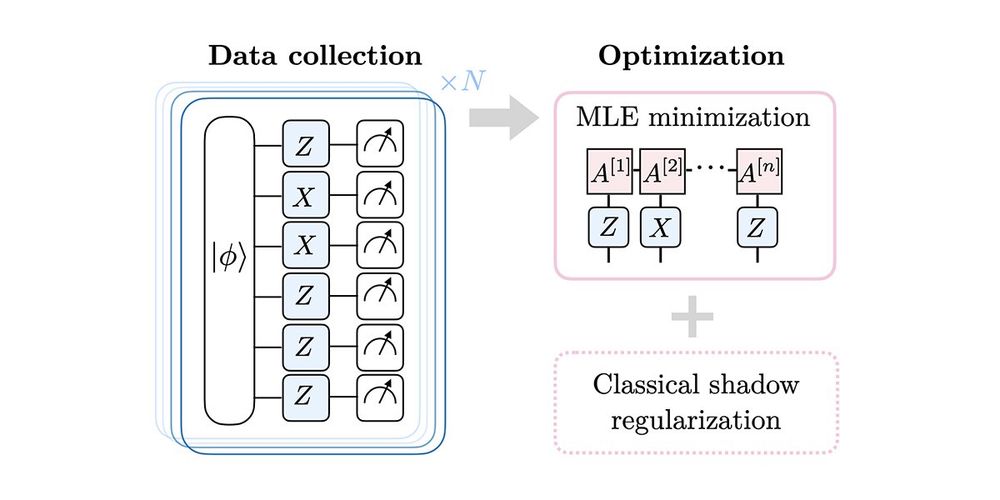
October 3, 2025 at 4:46 PM
A data-driven heuristic method using tensor-network ansatze is shown to perform high-fidelity tomography of topological states.
go.aps.org/4nVFFKy
go.aps.org/4nVFFKy
Computational relative entropy
We take steps towards a computationally efficient quantum information theory.
scirate.com/arxiv/2509.2...
We take steps towards a computationally efficient quantum information theory.
scirate.com/arxiv/2509.2...

September 26, 2025 at 3:41 PM
Computational relative entropy
We take steps towards a computationally efficient quantum information theory.
scirate.com/arxiv/2509.2...
We take steps towards a computationally efficient quantum information theory.
scirate.com/arxiv/2509.2...

September 18, 2025 at 5:48 PM
Optimal trace distance bounds for free-fermionic states: Testing and improved tomography
journals.aps.org/prxquantum/a...
How can one optimally learn Gaussian fermionic states? A new trace distance bound is the key.
Thanks to Lennart Bittel, @Antonio_ and Lorenzo Leone for this collaboration.
journals.aps.org/prxquantum/a...
How can one optimally learn Gaussian fermionic states? A new trace distance bound is the key.
Thanks to Lennart Bittel, @Antonio_ and Lorenzo Leone for this collaboration.

September 3, 2025 at 6:38 PM
Optimal trace distance bounds for free-fermionic states: Testing and improved tomography
journals.aps.org/prxquantum/a...
How can one optimally learn Gaussian fermionic states? A new trace distance bound is the key.
Thanks to Lennart Bittel, @Antonio_ and Lorenzo Leone for this collaboration.
journals.aps.org/prxquantum/a...
How can one optimally learn Gaussian fermionic states? A new trace distance bound is the key.
Thanks to Lennart Bittel, @Antonio_ and Lorenzo Leone for this collaboration.
A fun discussion at the Oxford Union at #Seeqa2025 circled around the question whether we can reasonably expect quantum computers to have a bigger impact on our lives than classical computers. With Elham Kashefi, Terry Rudolph, Victor Albert, Nathan Wiebe, Graham Smith.
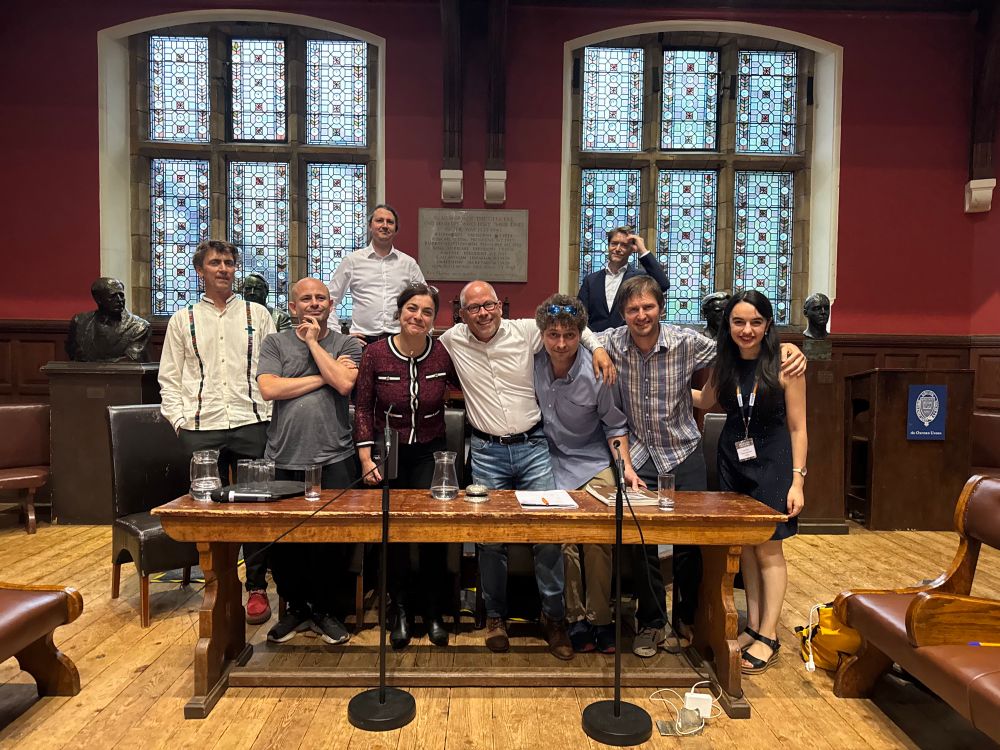

August 29, 2025 at 11:44 AM
A fun discussion at the Oxford Union at #Seeqa2025 circled around the question whether we can reasonably expect quantum computers to have a bigger impact on our lives than classical computers. With Elham Kashefi, Terry Rudolph, Victor Albert, Nathan Wiebe, Graham Smith.
Quantum metrology in the finite-sample regime
journals.aps.org/prxquantum/a...
We propose an operational framework of #quantummetrology in the practically meaningful regime of a few measurement samples, introducing probably approximately correct (#PAC) metrology.
journals.aps.org/prxquantum/a...
We propose an operational framework of #quantummetrology in the practically meaningful regime of a few measurement samples, introducing probably approximately correct (#PAC) metrology.

August 28, 2025 at 8:59 AM
Quantum metrology in the finite-sample regime
journals.aps.org/prxquantum/a...
We propose an operational framework of #quantummetrology in the practically meaningful regime of a few measurement samples, introducing probably approximately correct (#PAC) metrology.
journals.aps.org/prxquantum/a...
We propose an operational framework of #quantummetrology in the practically meaningful regime of a few measurement samples, introducing probably approximately correct (#PAC) metrology.
Random #tensornetworks provide a powerful framework for probing and understanding complex quantum systems, especially in regimes where conventional tools fail. Here, we rigorously investigate dynamical properties of holographic toy models.
scirate.com/arxiv/2508.1...
scirate.com/arxiv/2508.1...

August 25, 2025 at 3:55 AM
Random #tensornetworks provide a powerful framework for probing and understanding complex quantum systems, especially in regimes where conventional tools fail. Here, we rigorously investigate dynamical properties of holographic toy models.
scirate.com/arxiv/2508.1...
scirate.com/arxiv/2508.1...
Learning quantum states - aka #quantum state tomography - is strangely sample inefficient for #continuousvariable states. For #Gaussian states, it should be relatively easy. Here, we find an energy independent way, equipped with rigorous performance guarantees.
scirate.com/arxiv/2508.1...
scirate.com/arxiv/2508.1...

August 25, 2025 at 3:49 AM
Learning quantum states - aka #quantum state tomography - is strangely sample inefficient for #continuousvariable states. For #Gaussian states, it should be relatively easy. Here, we find an energy independent way, equipped with rigorous performance guarantees.
scirate.com/arxiv/2508.1...
scirate.com/arxiv/2508.1...
Two papers approach the question of how to better classically simulate quantum circuits at large scales and/or in the presence of noise. It turns out that one can go to large system sizes and even equip statements with rigorous guarantees.
scirate.com/arxiv/2508.0...
scirate.com/arxiv/2508.1...
scirate.com/arxiv/2508.0...
scirate.com/arxiv/2508.1...

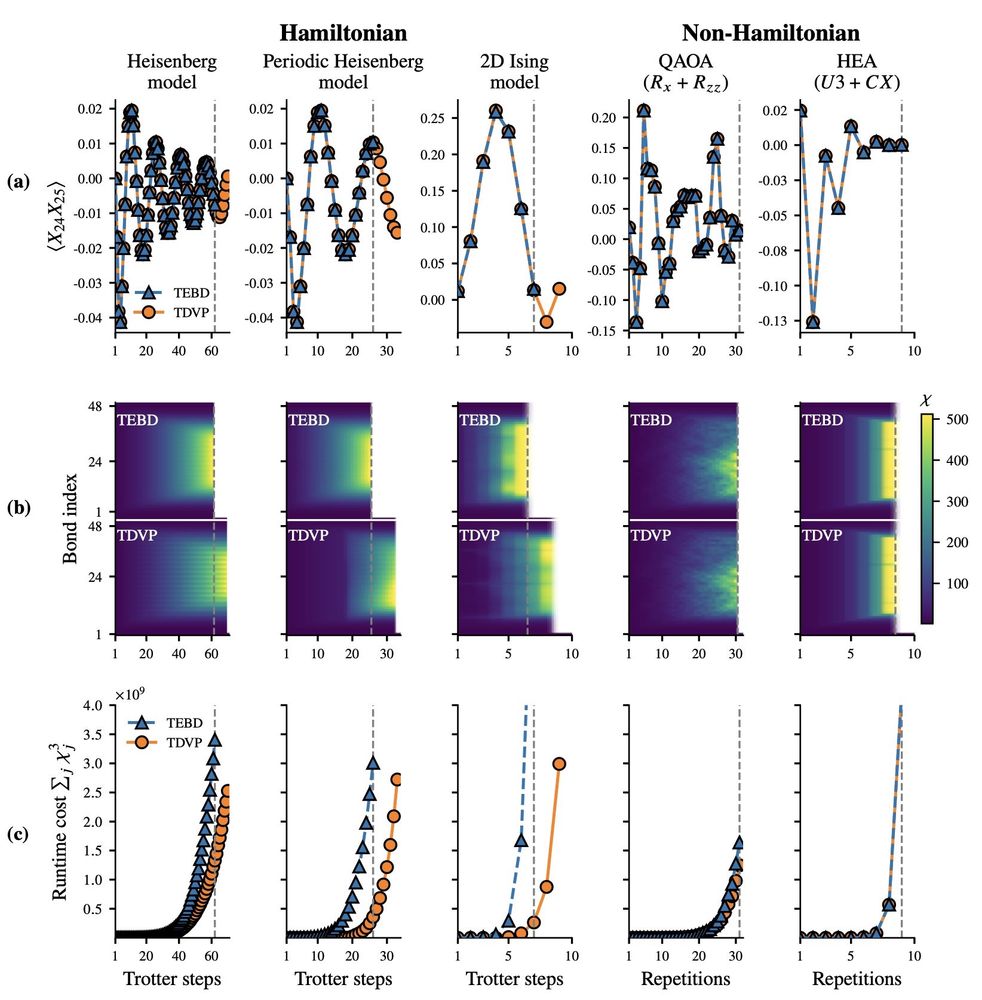
August 15, 2025 at 12:36 PM
Two papers approach the question of how to better classically simulate quantum circuits at large scales and/or in the presence of noise. It turns out that one can go to large system sizes and even equip statements with rigorous guarantees.
scirate.com/arxiv/2508.0...
scirate.com/arxiv/2508.1...
scirate.com/arxiv/2508.0...
scirate.com/arxiv/2508.1...
Where do thermal states in nature come from? We present technical progress: we show that if initial states are slightly perturbed— anyway not known to arbitrary precision—then local thermalization can be rigorously proven, offering a novel perspective on typicality.
www.nature.com/articles/s42...
www.nature.com/articles/s42...

July 18, 2025 at 5:10 AM
Where do thermal states in nature come from? We present technical progress: we show that if initial states are slightly perturbed— anyway not known to arbitrary precision—then local thermalization can be rigorously proven, offering a novel perspective on typicality.
www.nature.com/articles/s42...
www.nature.com/articles/s42...
Summer is back, and so are our garden seminars on #quantumerrorcorrection. Thanks so much, Virgile Guemard, for the compelling talk on lifted quantum Tanner codes.

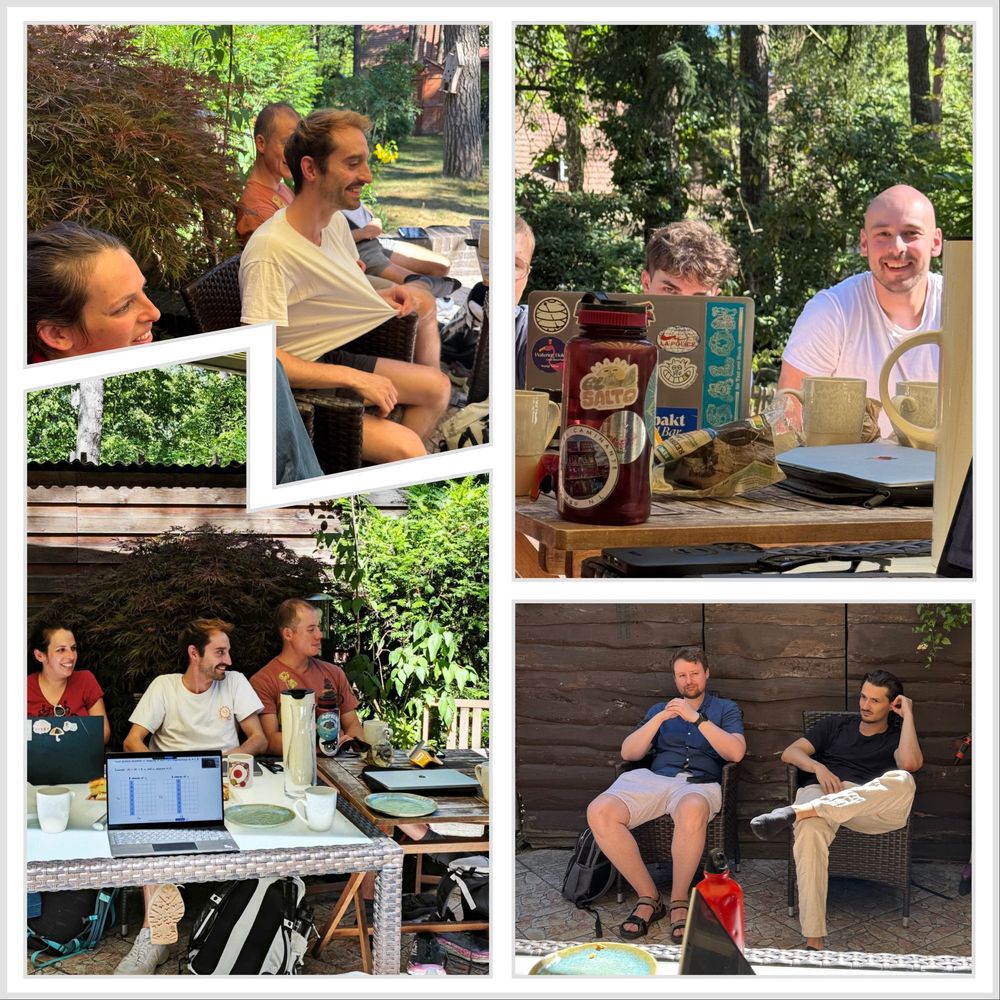
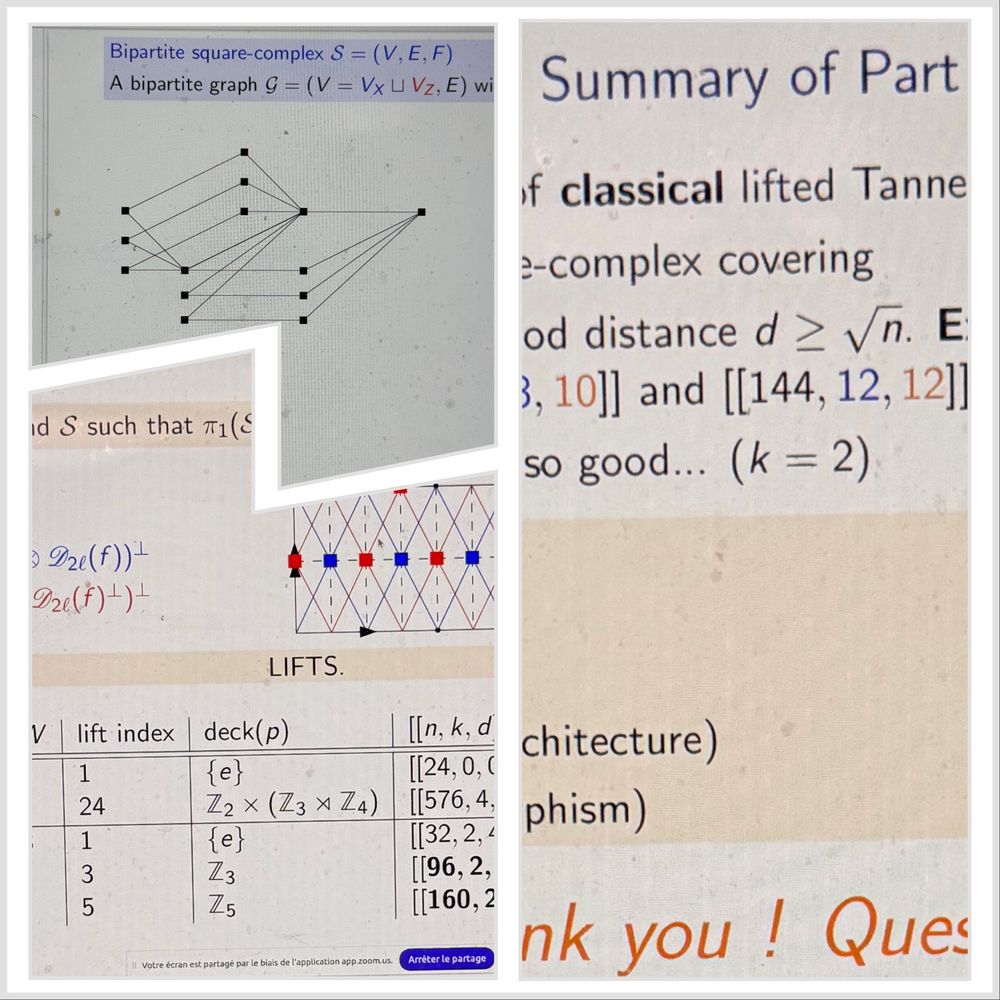

July 2, 2025 at 8:19 AM
Summer is back, and so are our garden seminars on #quantumerrorcorrection. Thanks so much, Virgile Guemard, for the compelling talk on lifted quantum Tanner codes.

July 2, 2025 at 8:10 AM
Teaching is fun. Today, I have covered elements of the Pauli and Clifford groups.
Cutely, at the very same moment when in Cologne, a #Berlin-#Cologne workshop is talking place on the Clifford commutant, triggered by two papers only,
arxiv.org/abs/2504.12263,
arxiv.org/abs/1712.08628.
Cutely, at the very same moment when in Cologne, a #Berlin-#Cologne workshop is talking place on the Clifford commutant, triggered by two papers only,
arxiv.org/abs/2504.12263,
arxiv.org/abs/1712.08628.


July 1, 2025 at 8:18 AM
Teaching is fun. Today, I have covered elements of the Pauli and Clifford groups.
Cutely, at the very same moment when in Cologne, a #Berlin-#Cologne workshop is talking place on the Clifford commutant, triggered by two papers only,
arxiv.org/abs/2504.12263,
arxiv.org/abs/1712.08628.
Cutely, at the very same moment when in Cologne, a #Berlin-#Cologne workshop is talking place on the Clifford commutant, triggered by two papers only,
arxiv.org/abs/2504.12263,
arxiv.org/abs/1712.08628.
A minimal tensor network beyond free fermions.
www.scipost.org/SciPostPhys....
This work proposes a minimal model extending the duality between classical statistical spin systems and fermionic systems beyond the case of free fermions, for the #CRC183.
www.scipost.org/SciPostPhys....
This work proposes a minimal model extending the duality between classical statistical spin systems and fermionic systems beyond the case of free fermions, for the #CRC183.

June 26, 2025 at 5:53 AM
A minimal tensor network beyond free fermions.
www.scipost.org/SciPostPhys....
This work proposes a minimal model extending the duality between classical statistical spin systems and fermionic systems beyond the case of free fermions, for the #CRC183.
www.scipost.org/SciPostPhys....
This work proposes a minimal model extending the duality between classical statistical spin systems and fermionic systems beyond the case of free fermions, for the #CRC183.
Variationally optimizing infinite projected entangled-pair states at large bond dimensions: A split corner transfer matrix renormalization group approach
journals.aps.org/prb/abstract...
Thanks to Jan Naumann, Erik Lennart Weerda, Matteo Rizzi, and Philipp Schmoll for this #CRC183 collaboration.
journals.aps.org/prb/abstract...
Thanks to Jan Naumann, Erik Lennart Weerda, Matteo Rizzi, and Philipp Schmoll for this #CRC183 collaboration.

June 12, 2025 at 8:46 AM
Variationally optimizing infinite projected entangled-pair states at large bond dimensions: A split corner transfer matrix renormalization group approach
journals.aps.org/prb/abstract...
Thanks to Jan Naumann, Erik Lennart Weerda, Matteo Rizzi, and Philipp Schmoll for this #CRC183 collaboration.
journals.aps.org/prb/abstract...
Thanks to Jan Naumann, Erik Lennart Weerda, Matteo Rizzi, and Philipp Schmoll for this #CRC183 collaboration.
Quantum state tomography for states that vary with parameters such as time or control settings attains new capabilities in characterization of evolving quantum states.
go.aps.org/3SAelEa
go.aps.org/3SAelEa

June 8, 2025 at 5:41 AM
Quantum state tomography for states that vary with parameters such as time or control settings attains new capabilities in characterization of evolving quantum states.
go.aps.org/3SAelEa
go.aps.org/3SAelEa
Quantum computing and artificial intelligence: status and perspectives
In recent years, several research lines became important that are located at the intersection of the study of quantum computers and of notions of artificial intelligence.
scirate.com/arxiv/2505.2...
In recent years, several research lines became important that are located at the intersection of the study of quantum computers and of notions of artificial intelligence.
scirate.com/arxiv/2505.2...

June 2, 2025 at 4:08 AM
Quantum computing and artificial intelligence: status and perspectives
In recent years, several research lines became important that are located at the intersection of the study of quantum computers and of notions of artificial intelligence.
scirate.com/arxiv/2505.2...
In recent years, several research lines became important that are located at the intersection of the study of quantum computers and of notions of artificial intelligence.
scirate.com/arxiv/2505.2...
"Why do we do quantum? And what does the field have to offer for young researchers?" An outreach and scientific talk to be held today at a supplier workshop of the @munichquantum.bsky.social.
indico.munich-quantum-valley.de/event/736/ti...
Yesterday, I spoke for the #BMFTR project #MuniQCAtoms.
indico.munich-quantum-valley.de/event/736/ti...
Yesterday, I spoke for the #BMFTR project #MuniQCAtoms.


May 28, 2025 at 11:00 AM
"Why do we do quantum? And what does the field have to offer for young researchers?" An outreach and scientific talk to be held today at a supplier workshop of the @munichquantum.bsky.social.
indico.munich-quantum-valley.de/event/736/ti...
Yesterday, I spoke for the #BMFTR project #MuniQCAtoms.
indico.munich-quantum-valley.de/event/736/ti...
Yesterday, I spoke for the #BMFTR project #MuniQCAtoms.


